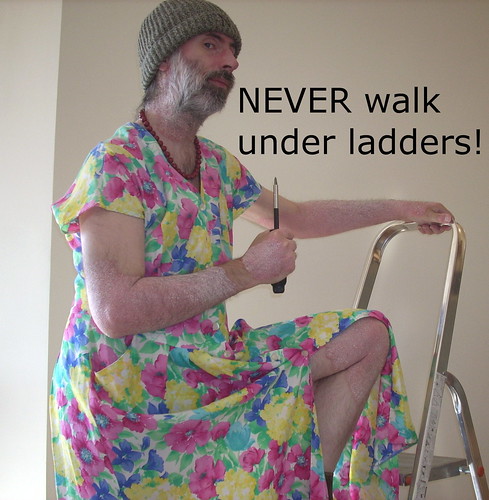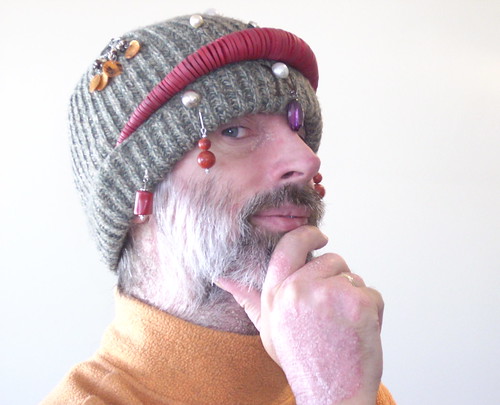
This has proved to be the most popular image yet, hitting nearly 70 views in the first 24 hours. The task was to show a joke visually, but while most people used an old joke I created a new one and then photographed that, adding a simple text comment on the image to drive the meaning home.
After producing a series of humorous images prior to this one, having to deliberately create one seemed a daunting task as I usually wrap the humour around the subject instead of inserting the subject into the humour. Rather than try to remember a joke and then ponder how to photograph it, I used yesterday's gay lumberjack image and thought about what would be funny if I put him in a dress, in a way that would be appeal to adolescents and adults.


